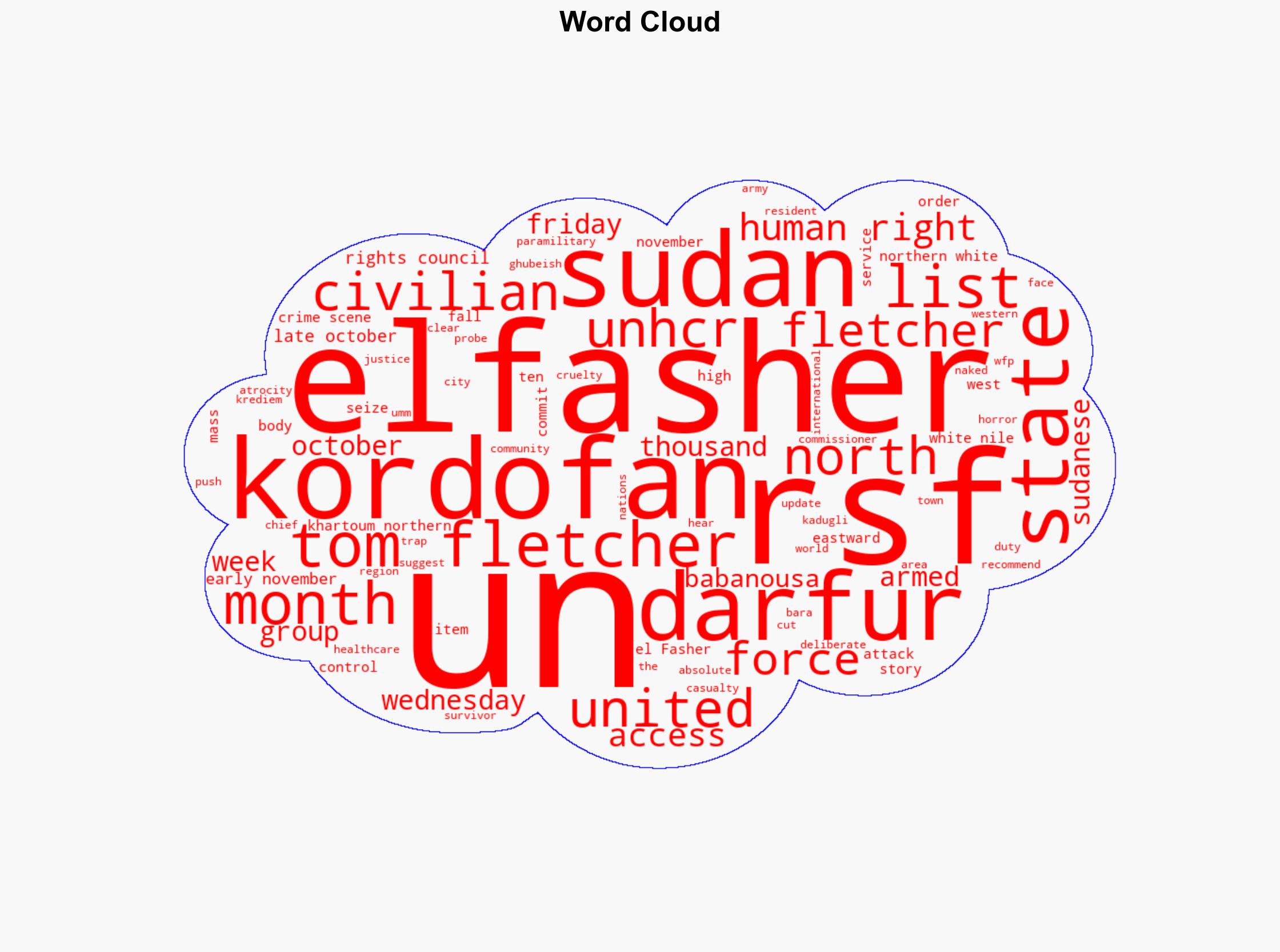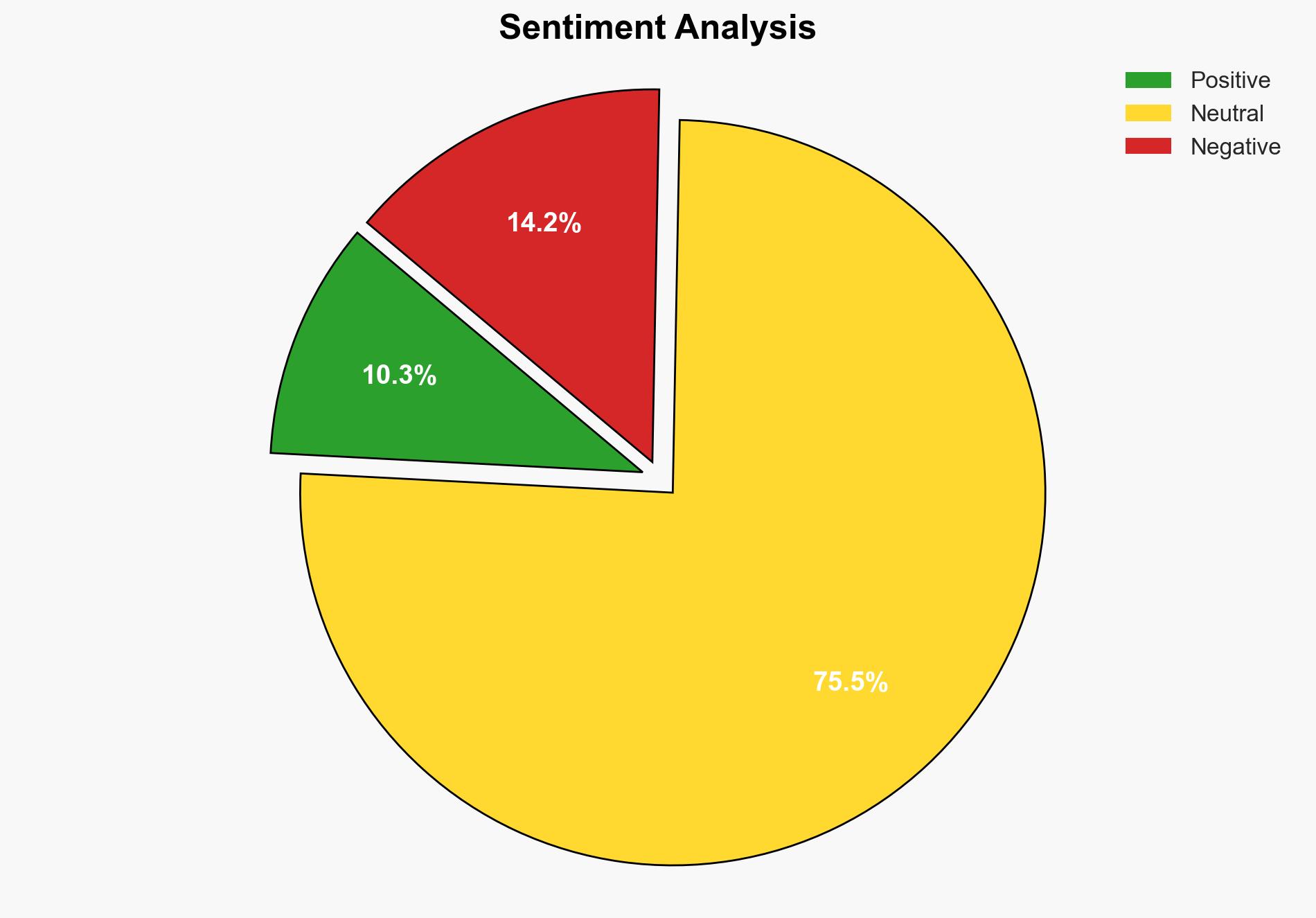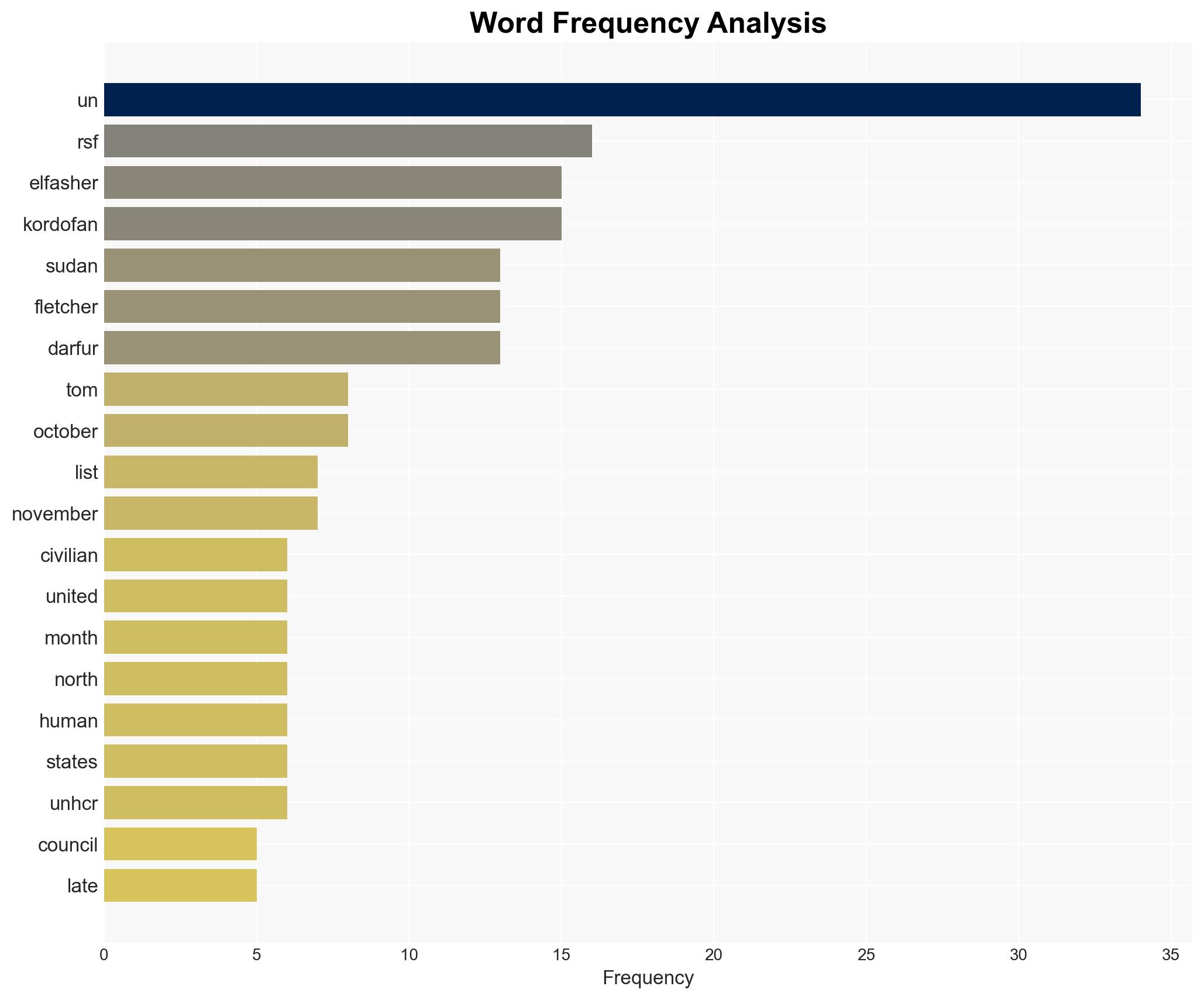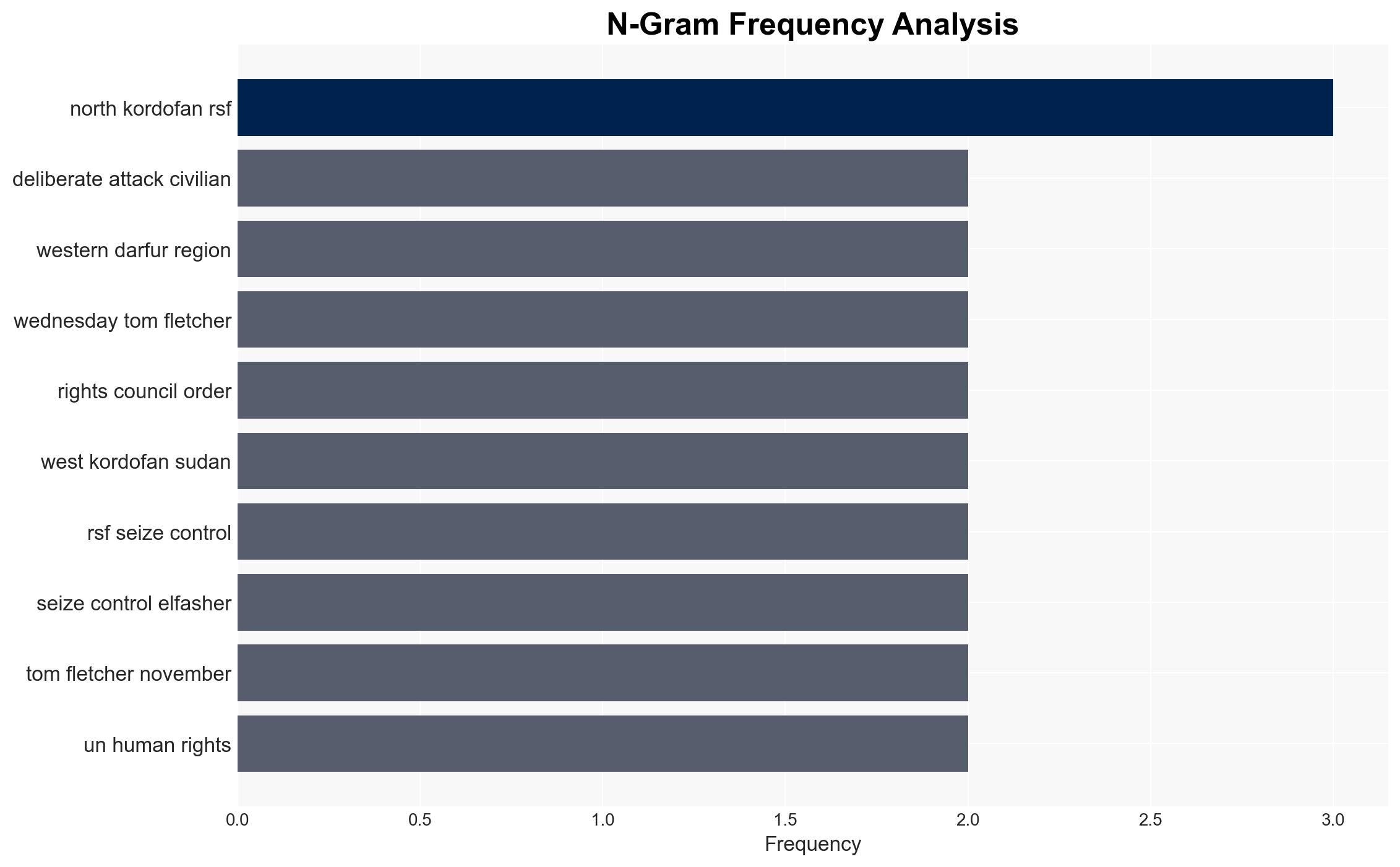Sudans el-Fasher a crime scene after RSF takeover UN aid chief – Al Jazeera English
Published on: 2025-11-19
AI-powered OSINT brief from verified open sources. Automated NLP signal extraction with human verification. See our Methodology and Why WorldWideWatchers.
Intelligence Report:
1. BLUF (Bottom Line Up Front)
The most supported hypothesis is that the Rapid Support Forces (RSF) are responsible for deliberate attacks on civilians in El-Fasher, transforming it into a crime scene. This conclusion is drawn from multiple credible sources, including UN officials and satellite imagery. The strategic recommendation is for the international community to increase diplomatic pressure on the RSF and support humanitarian access to affected areas. Confidence Level: High.
2. Competing Hypotheses
Hypothesis 1: The RSF is deliberately targeting civilians in El-Fasher as part of a broader campaign to consolidate control over the region.
Hypothesis 2: The violence against civilians in El-Fasher is primarily the result of rogue actors within the RSF, not a coordinated effort by the RSF leadership.
Hypothesis 1 is more likely due to consistent reports from UN officials, human rights groups, and satellite imagery indicating systematic mass killings and mass graves. Hypothesis 2 is less supported, as RSF leadership’s denial lacks corroborating evidence and may serve as a deception tactic to deflect international scrutiny.
3. Key Assumptions and Red Flags
Assumptions include the reliability of UN and human rights group reports and the accuracy of satellite imagery. A red flag is the RSF’s denial of targeting civilians, which may indicate a strategy to mislead international observers. There is also a risk of bias in reports from parties with vested interests in the conflict.
4. Implications and Strategic Risks
The situation in El-Fasher could escalate into a broader humanitarian crisis, exacerbating regional instability. The RSF’s actions may lead to increased displacement, strain on neighboring regions, and potential international military intervention. Cyber and informational warfare could be employed by various actors to manipulate narratives and influence international response.
5. Recommendations and Outlook
- Immediate international diplomatic engagement with Sudanese authorities and RSF leadership to halt violence against civilians.
- Facilitate humanitarian access to El-Fasher and surrounding areas to provide aid and medical support.
- Monitor and document human rights abuses for potential future legal actions against perpetrators.
- Best-case scenario: Successful diplomatic intervention leads to cessation of hostilities and humanitarian access.
- Worst-case scenario: Continued RSF aggression results in widespread civilian casualties and regional destabilization.
- Most-likely scenario: Ongoing violence with intermittent international pressure, leading to a protracted conflict.
6. Key Individuals and Entities
Tom Fletcher (UN Aid Chief), Volker Turk (UN High Commissioner for Human Rights), RSF leadership.
7. Thematic Tags
Regional Focus, Regional Focus: Sudan, Darfur, Human Rights, International Diplomacy, Humanitarian Crisis
Structured Analytic Techniques Applied
- Causal Layered Analysis (CLA): Analyze events across surface happenings, systems, worldviews, and myths.
- Cross-Impact Simulation: Model ripple effects across neighboring states, conflicts, or economic dependencies.
- Scenario Generation: Explore divergent futures under varying assumptions to identify plausible paths.
Explore more:
Regional Focus Briefs ·
Daily Summary ·
Support us





